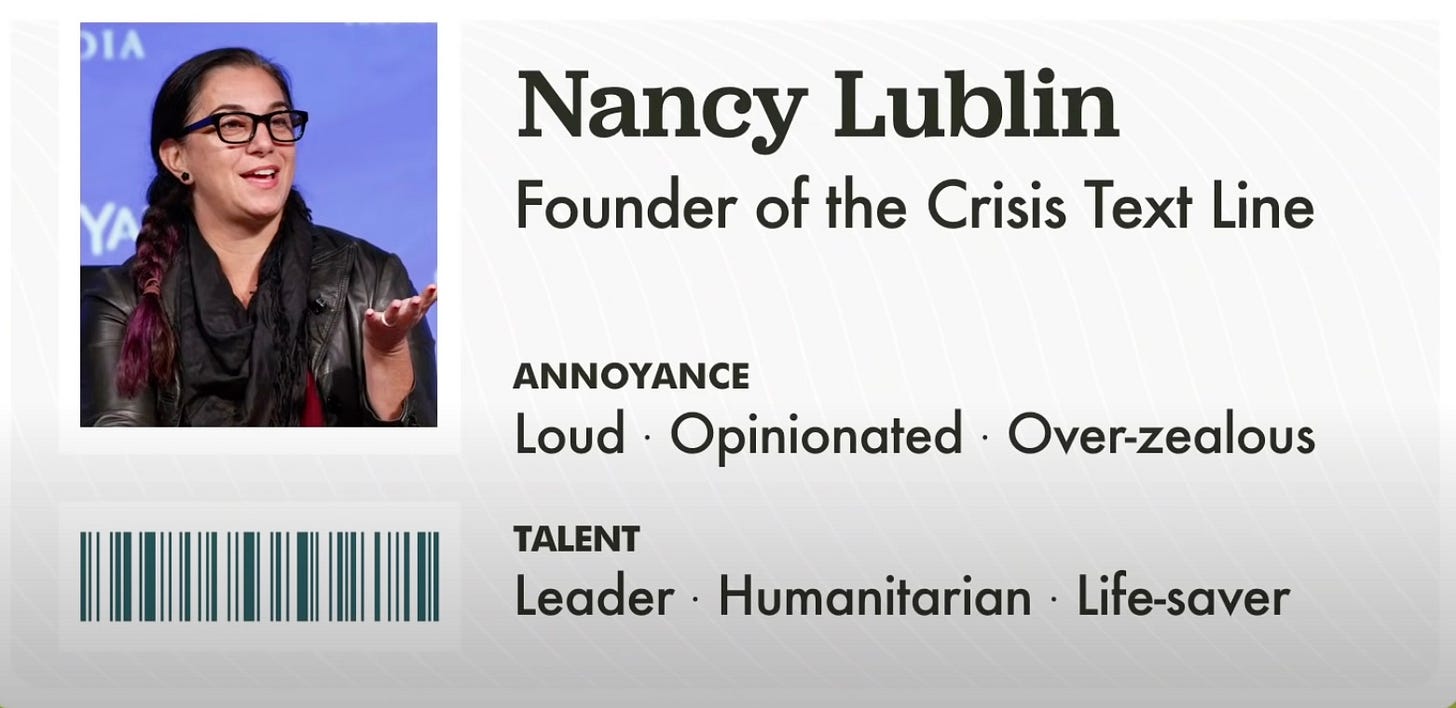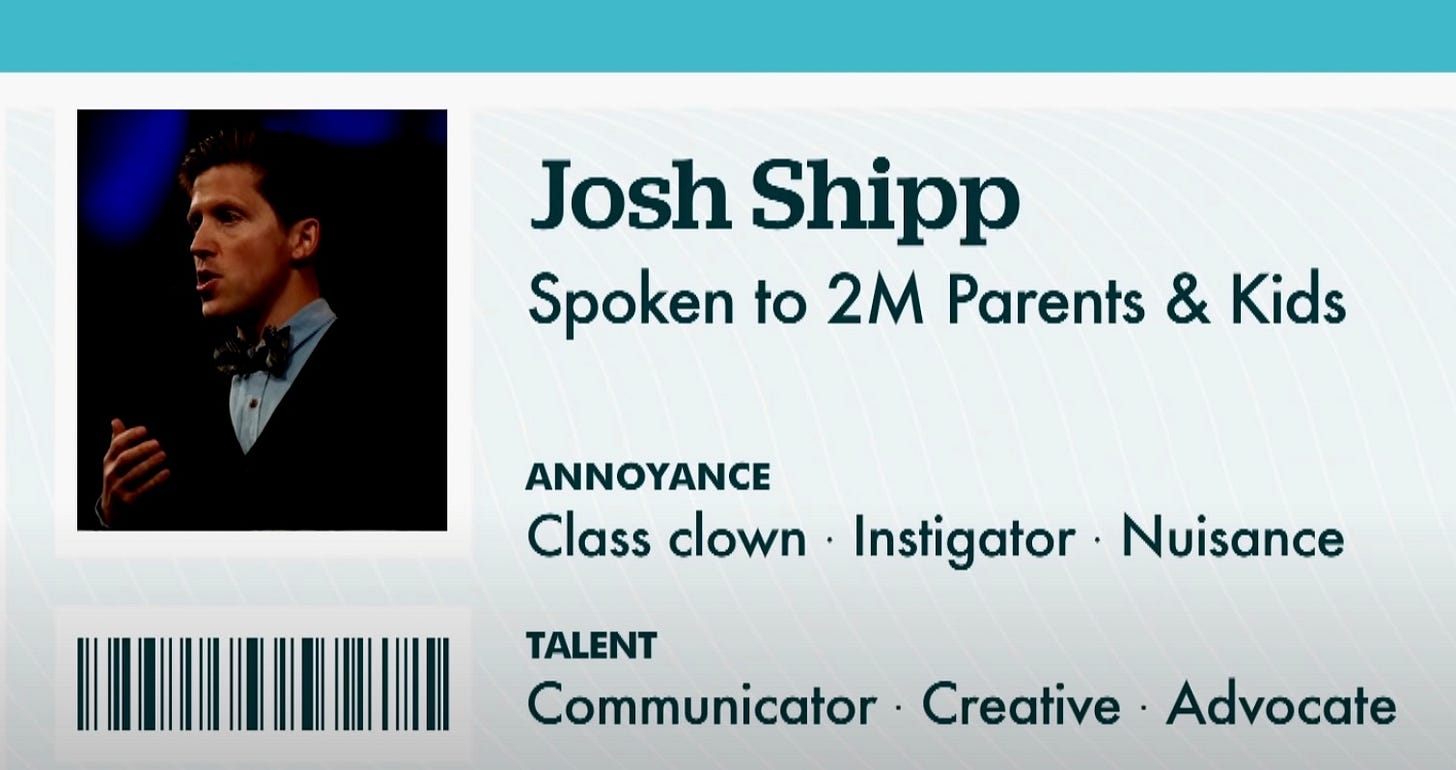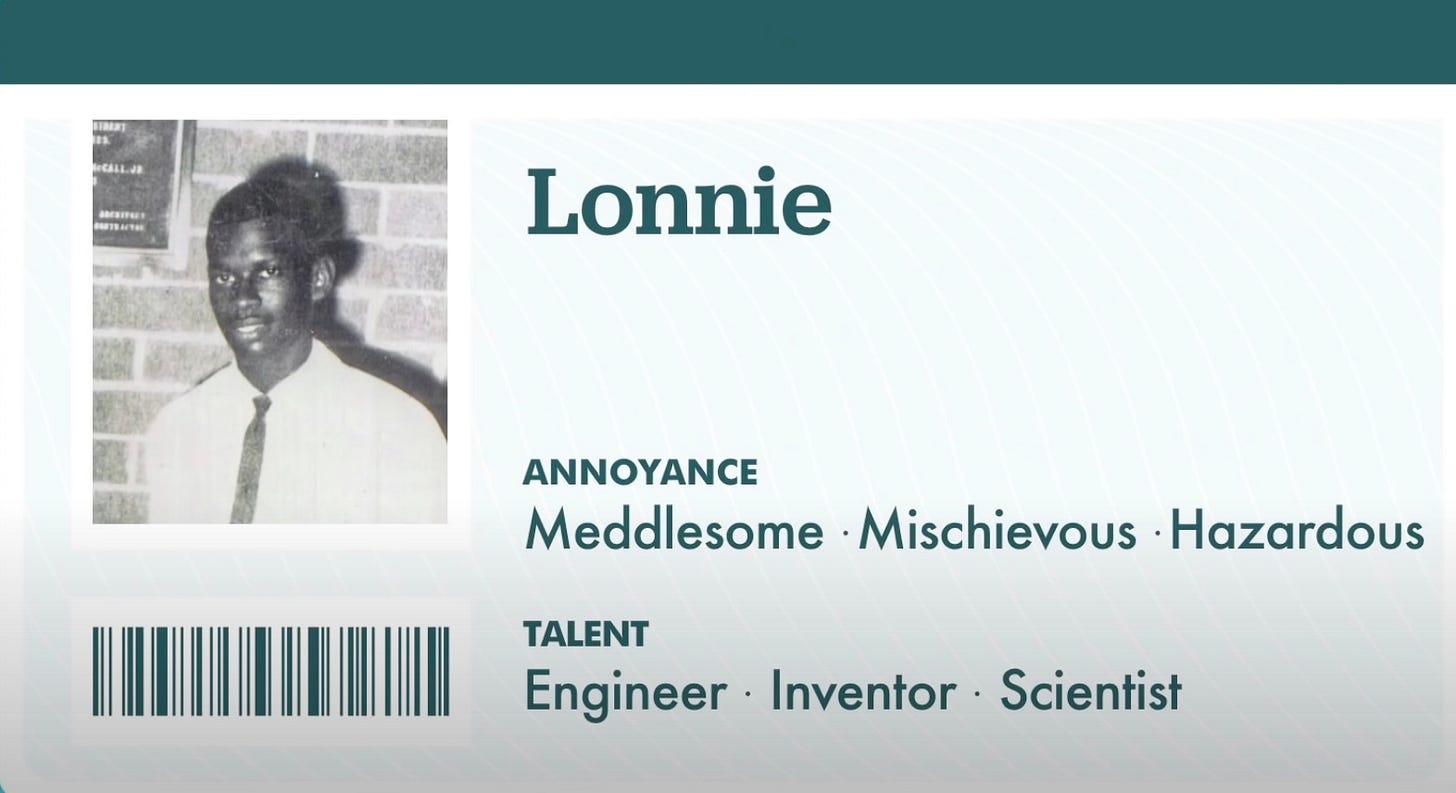Parenting (Part II). Frontiers Friday #156 ⭕️
Can annoyances be assets?
Thanks for reading Frontiers of Psychotherapist Development (FPD) and our weekly newsletter, Frontiers Friday (FF). If you are new here, learn about me, the About Page and our “Grand Plan” overview post.
These posts are meant to be what Lewis Hyde describes as true “Gifts.” What this “Gift” concept means for me is that
Nothing is expected out of you.
I hope you receive it.
I hope this animates and transforms you.
I hope you spread the love to others.
Here’s Part II of the Parenting series from Frontiers of Psychotherapist Development (FPD), Frontiers Friday.
FF156. Parenting (Part II)
Watch: Your Child's Most Annoying Trait May Just Reveal Their Greatest Strengths
In one sentence, here's what this video by Josh Shipp is about: ANNOYANCES ARE ASSETS IN DISGUISE.
Here are three profiles of annoyances that became assets:Watch the talk.
The Daily Dad Email List
"One email every day inspired by the greatest wisdom and lessons from history, science, literature and ordinary parents"
I treat the daily emails from The Daily Dad as a prompt for pause, a way to remember things that are in my heart that my head has forgotten.Web-Read: Defiance is a Relationship Problem, Not a Discipline Problem.
Here's a good one from Laura Markham's blog, Ahaparenting.com. What I really like about her work is that she translates this into actual conversations that parents can have with their kids. After all, conversation is the highest art form.
Key Grafs:
- You have to address defiance, but you can't solve it with discipline. You solve defiance with connection.
- Remind yourself that his defiance is a bid for reconnection, not something that requires discipline.
- When kids are defiant, it's a relationship problem.
- Anger won't begin to fade until it feels heard. "Oh, so you feel....You wish...It must feel so hard that...."
(DC: This has especially been an important lesson for me. As an Asian parent, we match anger with anger, yelling with yelling. “You are so rude and disrespectful! [in a raised voice] You better stop raising your voice!” Does nothing but escalate the situation. When my kids hear from my wife and I that we understand what’s underneath the hurt, even in our flailing attempts, something softens inside our kids when they feel understood by someone who cares.)
- Translate your teen's defiant words. Your child may sound like she never wants to see you again, but underneath her rudeness, she's saying "I'm all alone out here and pretty miserable...I wish you'd find a way to come out in the cold and get me, because I don't know how to find my way back."
- Whatever your child's age, respect his right to refuse sometimes.
- The more he feels you'll listen when he makes his request, the less he needs to resort to defiance to express his wishes.
- Finally, notice that defiance is an opportunity, not an emergency.
(DC: This point hits home. I need to tame down the ancestral voices inside of me.)
- Defiance is like a red light on the dashboard of your car; a signal that something is wrong that you need to fix. What's wrong isn't the child, but the relationship, and you fix that by reconnecting, not by attacking.
Recommended Book: Playful Parenting by Lawrence Cohen
Play is an antidote, a channel for learning and connection. No just a means to an end, play is itself an end of itself that is valuable.
Your child, your client's children, will thank you, if we learn to nourish ourselves with more playfulness.
This book stands as one of the most underrated books on parenting. I highly recommend this.
It's packed full of examples from the psychologist Lawrence Cohen's life, as well as clinical examples.⏸️ Words Word Contemplating:
"Love your child by learning the song that is in her heart and singing it to her when she forgets it."
~ Anonymous, as cited by Daniel Hughes, in Attachment-Focused Parenting.
Reflection:
How do you relate with a child when they defy?
How were you treated with you were defiant as a child?
Notice Board:
Happy World Mental Health Day this week!
You might be interested in my other Substack, Full Circles: Meditations on the Inner and Outer Life. A new one this week called Stumbling on Self Forgetting, somewhat of a genesis story.
Daryl Chow Ph.D. is the author of The First Kiss, co-author of Better Results, and The Write to Recovery, Creating Impact, and the new book The Field Guide to Better Results .







Your wonderful questions stimulate profound introspection. I try seeking care, tenderness, and understanding to foster an environment where compassion and love flourish, void of disputes, blame, or argumentation. During moments of defiance, my steadfast angels, like Mrs. Gebers, my first-grade teacher, kindled hope and inspiration. Despite my challenges, she fostered an environment conducive to my personal growth. A poignant memory arises when she revealed a medal earned through years of marathon practice, symbolizing both introspection and outward effort, accompanied by perseverance. Her nurturing approach, coupled with my struggles of being deaf, dyslexic, and a slow learner sowed the seeds of my journey towards becoming a deep learner. May you move and be moved friend.